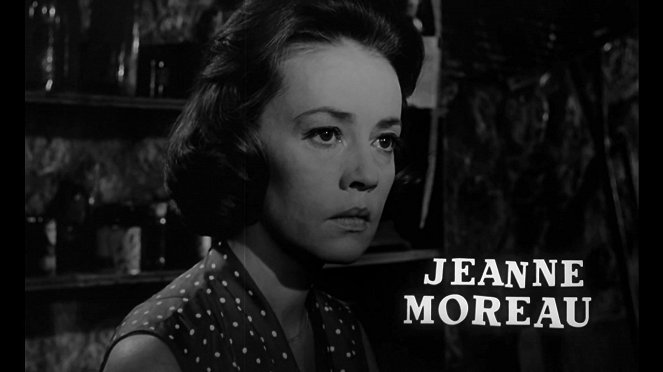Musique:
Maurice JarreActeurs·trices:
Burt Lancaster, Paul Scofield, Jeanne Moreau, Suzanne Flon, Michel Simon, Wolfgang Preiss, Richard Münch, Jacques Marin, Howard Vernon (plus)VOD (2)
Résumés(1)
Juillet 1944, le colonel Von Waldheim fait évacuer les tableaux de maîtres de la Galerie nationale du Jeu de Paume pour les envoyer en Allemagne. Labiche, un cheminot résistant, est chargé de conduire le train transportant ces objets d'art. Avec l'aide de ses compagnons résistants, il va chercher à faire en sorte que le train et les tableaux n'arrivent jamais à destination... (Flash Pictures)
(plus)Critiques (4)
No idyll with romantically whistling train, merrily chuffing though the glorious French landscape, but a reality of deafening iron monsters spouting steam and oil at the end of occupation. Basically the very best and most suspenseful way of paying respect to the memory of the French railroad Resistance. Apart from one detail. The character played by Paul Scofield. Such a crudely negative character stands out like a blot on the landscape in this movie. You would expect him to torture his prisoners and laugh crazy Huron laughter while doing so. But in fact, all the characters are really “gray", and only he is clearly black-and-white, although the motivation side is convincing. He would have fitted in well in a naively delivered movie, but here he just spoils the aura of convincingness.
()
Du cinéma de première classe, qui grâce à sa précision (et à sa connexion thématique) m'a rappelé le film Valkyrie de Singer. Un thriller captivant qui a une longueur d'avance sur le spectateur grâce à son scénario intelligent, augmentant brillamment la tension, ne lésinant pas sur les explosions nombreuses et efficaces pour l'époque, et surtout disposant d'un méchant merveilleusement écrit et merveilleusement joué par Scofield. L'intransigeance et l'arrogance nazie se mêlent chez lui à un faible pour l'art, notamment pour les tableaux qu'il veut transférer en train de Paris à l'Allemagne, et que - selon ses propres mots - "un morceau de viande" comme le héros populaire interprété par Lancaster ne peut pas apprécier ne sachant donc même pas pour quoi il se bat. John Woo doit aimer ce film. La cinquième étoile lui échappe de justesse. JEREMIE
()
Ideologically old-world but formalistically progressive, The Train can be seen as bridge between the era of epic war movies of previous years and the action-adventure flicks in a war setting that came in later years. From the former category, The Train takes a stellar ensemble cast, as well as a sombre ethos and grand moral questions, which form the film’s backbone. From the latter category, it can be said that emphasis is placed on the action scenes and spectacle. But none of the films that came later (whether we take the Clint Eastwood movies or a bunch of Italian genre flicks as examples) can match The Train in this respect. Frankenheimer stages captivating sequences in which he uses precise compositions with multiple planes where he constantly makes the presence of the characters felt within that grand action. The most important thing here is the breathtaking moments when the actors are present at or directly involved in dangerous feats in close proximity to passing trains, crashing locomotives and exploding railway stations. As pointed out by Christopher McQuarrie, who holds the film up as a reference work for the new Mission: Impossible, in a number of scenes it is amazing how they managed to do this in an era before digital effects and how many sequences give the viewer the feeling of being close to the action, because everything is simply captured in the camera as it happens instead of using optical effects and rear projections. Also, in many of the suspenseful passages, the filmmakers take care to set the action in what are clearly actual places, which are used thoroughly to dramatic effect in the given sequences. As a result, the one or two scenes shot in a studio or in modified interiors inevitably seem out of place.
()
Riveting - that's the word that best describes The Train. Frankenheimer's ornate action ride doesn't look like a 64-year-old film at all, and in this day and age of digital effects and shaky cameras, it has absolutely nothing to be ashamed of. Don't believe me? When you see a locomotive "race" with a spitfire, one perfect crash or the chilling finale of "I need your trucks", you'll change your mind. The great atmosphere is aided by the tough-as-nails Lancaster, the art-loving Colonel Scofield, the black-and-white picture, Jarre's music, the often imaginative camera positions... Basically everything. I like trains, I like those guy movies from the Second World War and their taciturn heroes, I like Germans who think, who are even likeable and don't just look like stupid sausage-eaters who can be run over by a five-year-old... Five stars.
()

